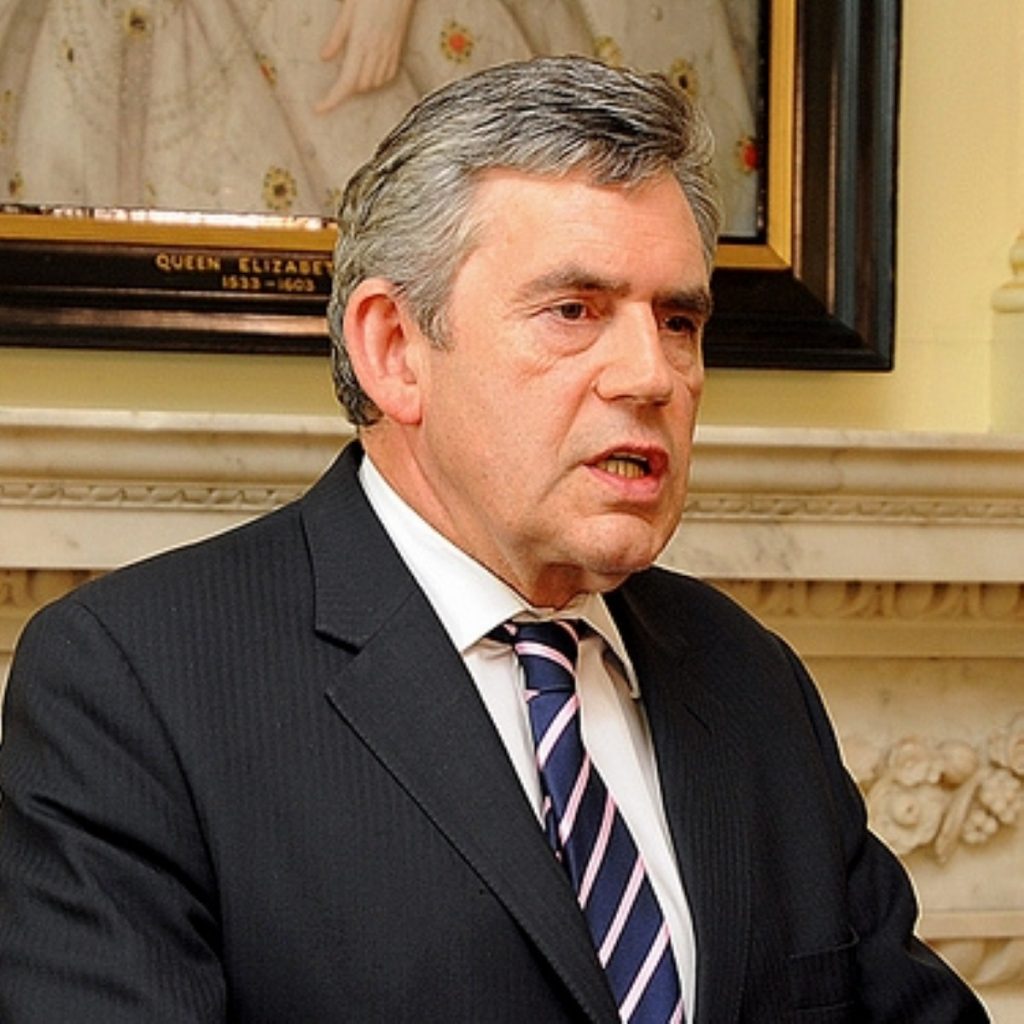Sketch: Brown’s awkward intimacy felt deeply disturbing
Every so often leaders turn on the ‘personal touch’ to get them out of trouble. For Gordon Brown, a man who’s prepared to whip out his moral compass at a moment’s notice, there was only one response to his misspelling clanger.
It was a cold, grey autumn morning in Downing Street, perfectly setting the tone for the prime minister. The overcast mood didn’t change once the journalists were carefully seated inside No 10. The prime minister dolefully strode out to meet the press, wearing a black tie and looking utterly funereal. He spoke slowly and quietly. At one stage it looked as if he were about to become overcome by emotion. Brown had the air of a Hollywood film star explaining the trauma of a recent high-profile divorce.
Only this is serious stuff, deadly serious stuff. Andy Burnham, who had been wheeled out to give the PM moral support and plug the government’s latest NHS reforms, was forced to announce his fresh, new and exciting proposals with the air of man about to abolish free healthcare forever. His brief work done, the spotlight focused again on his embattled leader.


The story focused on whether Brown was prepared to admit he had misspelt bereaved mother Jacqui Janes’ surname. He wriggled around the question with the heavy and clumsy touch we have come to know and love writing about. He apologised humbly for his clumsy handwriting being difficult to read. Perhaps he imagined Ms Janes struggling to perceive his meaning through her tear-stained eyes. Or perhaps – and this was an alarming, unexpected development – perhaps he really, really cared.
Afterwards journalists said it was awkward, bizarre, difficult to cope with. All noticed it: the prime minister, apparently labouring under the weight of a very strong emotion, appeared on the verge of breaking down himself. At the very least there was a real wobble in his voice. He appeared desperately frustrated by his inability to brush this one off. “I’m a parent who understands the feelings when something goes terribly, terribly wrong,” he pleaded, in response to a question by politics.co.uk. “I understand.”
Usually when someone looks you in the eye with this level of emotional intensity you’re being dumped, or fired, or told your pet doggy has met a violent and unexpected death. On this occasion the prime minister’s sincerity was underwritten by the restraints of his podium. The infinitely subtle way with which he strayed from the norms of the press conference environment appeared to back him up.
“I’m a parent, also,” he pointed out. At one stage he revealed he was a “shy person” – we’re sure those at the wrong end of his famous ear-bashings in Whitehall will agree. At least this explained why he felt he couldn’t tell Ms Janes that “it takes time to recover”. Brown’s daughter, Jennifer, died as an infant.
The sincerity test was strained most by Brown’s admission that, when writing these letters of condolence, “my first job is to explain the sympathy that the nation has”. In short, that they are motivated as much by duty as they are sympathy. The idea that he could brush off criticisms as “part of the job” were, in this light, a little suspicious. But when asked whether he felt frustrations with his leadership could be so lightly shrugged off, he quickly turned the focus back to Afghanistan.
“I understand when people are grieving they’re looking for the answers,” he replied limply. His personal emotional vulnerabilities were discomfiting to all present. When matched with his pleading desperation about falling support for the Afghanistan mission, they became even more disturbing.









